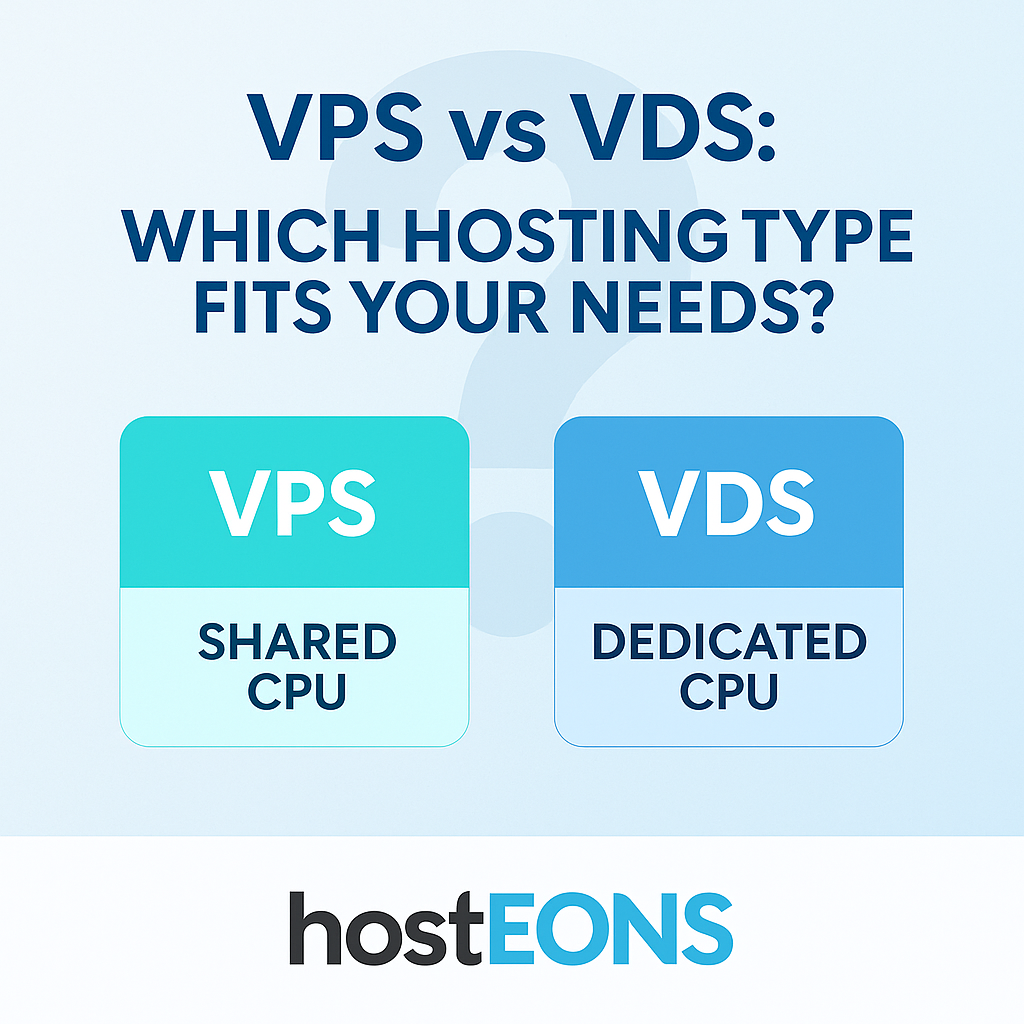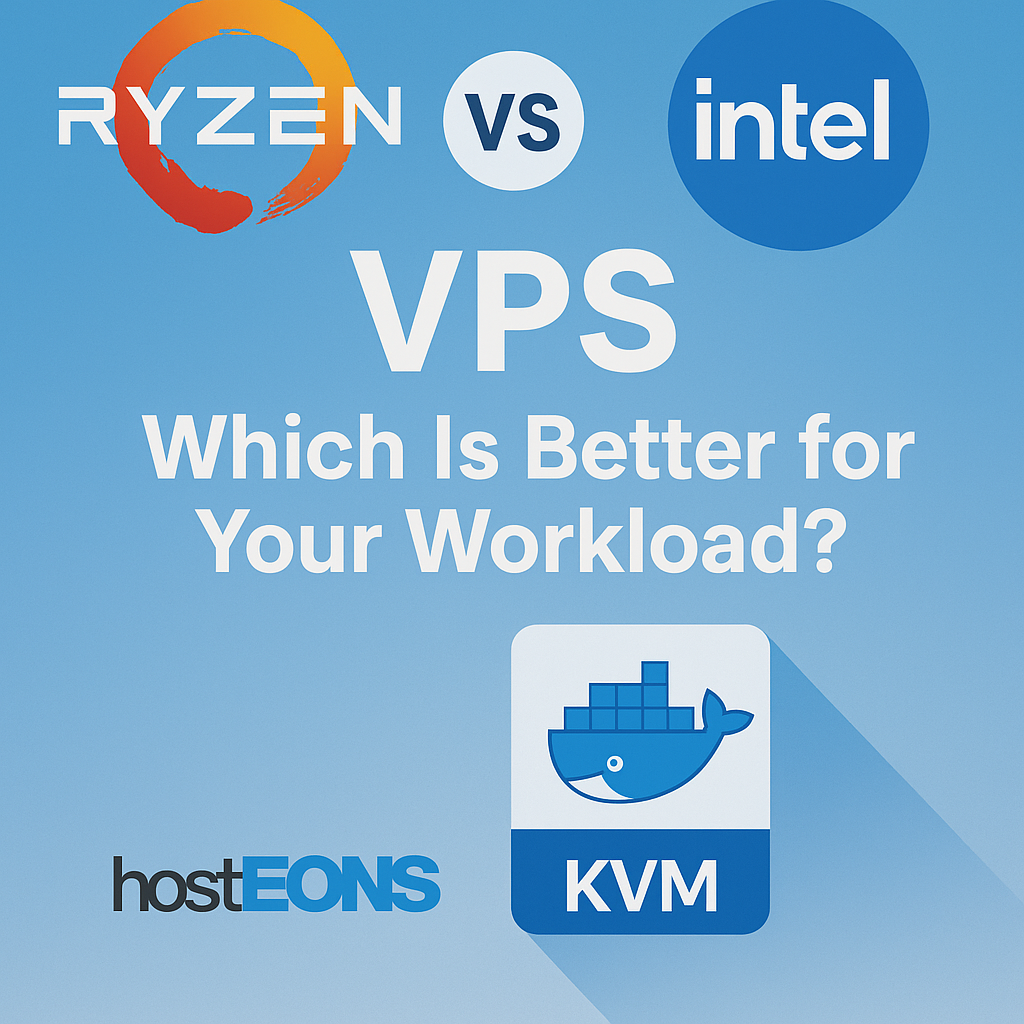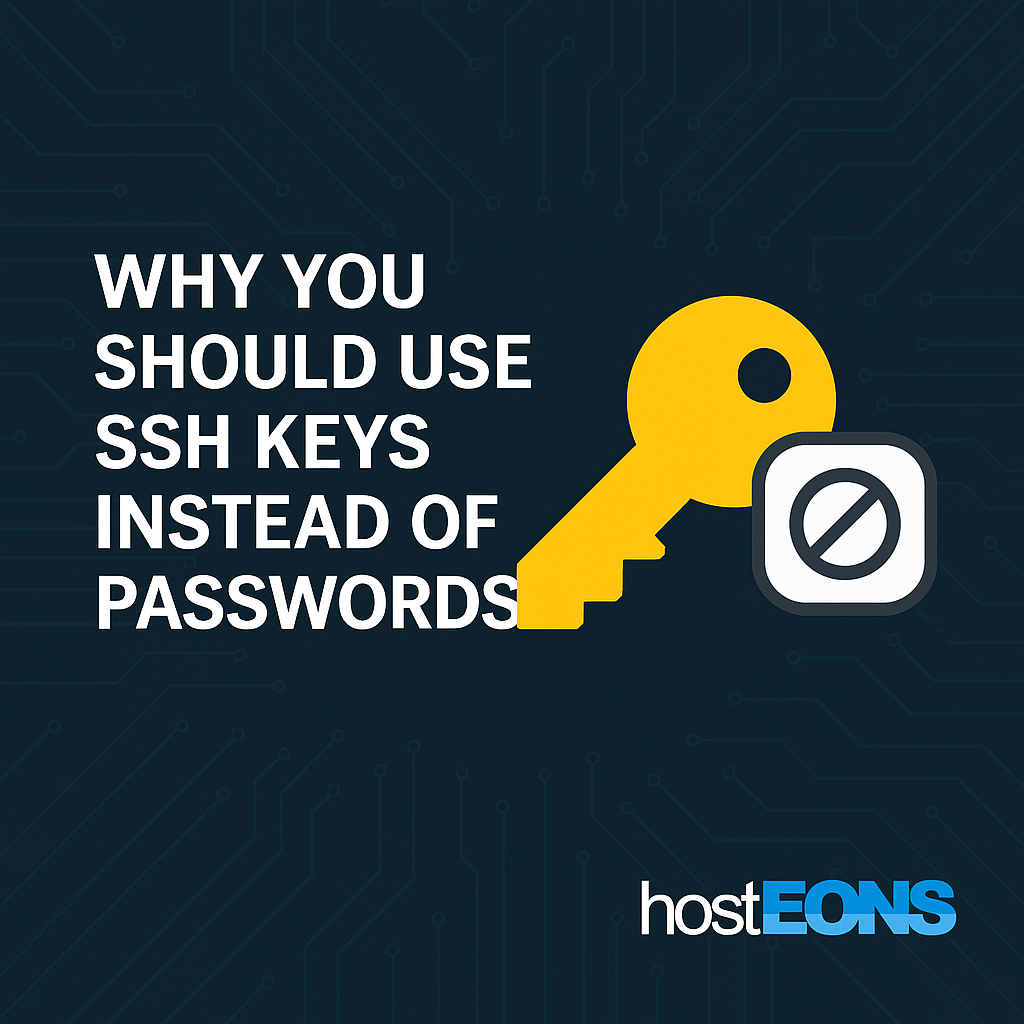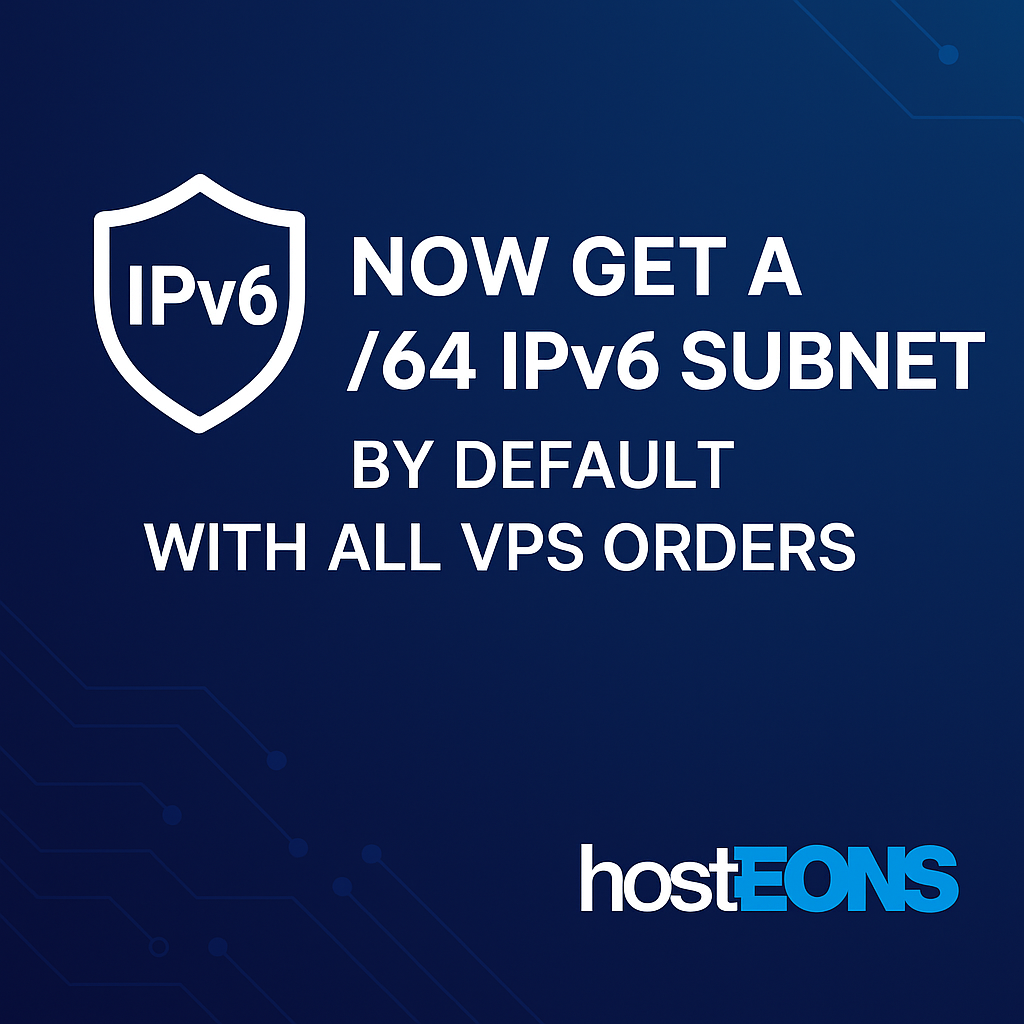
When choosing a hosting solution, you’ll often come across two terms: VPS (Virtual Private Server) and VDS (Virtual Dedicated Server). While they sound similar, there are important differences that can affect performance, pricing, and scalability. Understanding these differences will help you decide which option is right for your project.
At Hosteons, we offer both VPS and VDS hosting, so let’s break down the comparison.
🔹 What Is VPS Hosting?
A Virtual Private Server (VPS) is a virtual machine running on a powerful physical server. Each VPS gets its own dedicated portion of resources (RAM, storage, bandwidth), but CPU cores are shared among multiple users.
✅ Pros of VPS:
- Cost-effective solution for small to medium projects
- Scalable resources as your needs grow
- Great for websites, apps, and development environments
⚠️ Cons of VPS:
- CPU performance may fluctuate during peak loads
- Not ideal for heavy applications or consistently high traffic
🔹 What Is VDS Hosting?
A Virtual Dedicated Server (VDS) is also based on virtualization, but here you get dedicated CPU cores reserved exclusively for your use. This means more consistent performance — closer to a dedicated server, but at a fraction of the price.
✅ Pros of VDS:
- Guaranteed CPU resources with no sharing
- More stable and predictable performance
- Perfect for resource-heavy apps, game servers, and enterprises
⚠️ Cons of VDS:
- More expensive than VPS
- May be overkill for lightweight projects
🔑 VPS vs VDS: Key Differences
| Feature | VPS | VDS |
|---|---|---|
| CPU | Shared among users | Dedicated cores per user |
| Performance | Can fluctuate | Stable and consistent |
| Cost | Lower | Higher than VPS, less than dedicated server |
| Best For | Websites, small apps, dev environments | High-traffic apps, game servers, business-critical workloads |
🚀 Which One Should You Choose?
- Choose VPS if you need an affordable, scalable solution for websites, blogs, small businesses, or development projects.
- Choose VDS if you run performance-critical applications, expect heavy traffic, or need guaranteed dedicated resources.
🌐 VPS and VDS Hosting at Hosteons
At Hosteons, we provide both:
- US Budget KVM VPS – Affordable and reliable VPS hosting
- US Premium Ryzen VPS – High-performance VPS for demanding users
- EU KVM VPS (France & Germany) – European VPS with NVMe storage
- Ryzen 7950X VDS Hosting – VDS hosting with powerful dedicated CPU cores
✅ Conclusion
Both VPS and VDS hosting have their place. VPS is perfect for those starting out or running smaller workloads, while VDS is designed for users who need dedicated power at VPS-like prices.
With Hosteons, you can choose the hosting type that fits your needs — and upgrade anytime as your requirements grow.


